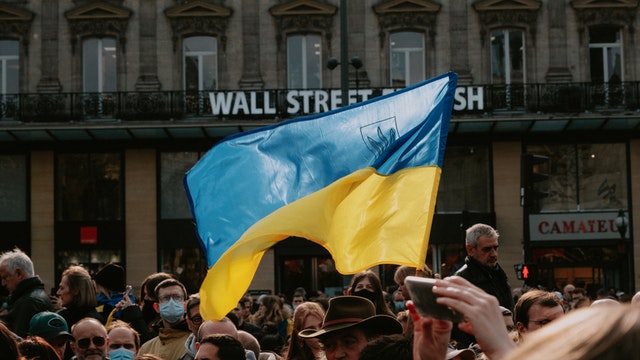The past few days have been a learning experience for me, as I had my first encounters with individuals (clients) living in North America and who were being impacted by the situation in Ukraine. I will be completely honest and say that at first, I felt inadequate and unprepared. The concept of war can seem quite foreign and unrelatable for those of us who grew up in Westernised/North American societies – while we may take peace for granted. We hear “war” and our eyes may glaze over a bit or we immediately think: “a historical occurrence”, or “that’s something happening to other people, very far away, and has nothing to do with me directly in any way”.
Whatever the case, as a counsellor, I needed to carry out my primary role and create that safe space for my clients to feel free to share what they were going through. Following what were clearly learning experiences for me, I thought that it would be helpful to share with other clinicians who will likely have to support clients through the same issues in the not-so-distant future.
Let’s start with some of the issues and concerns that clients presented with:
- Feelings of uselessness – possibly considering that they are too far away from their country to be helpful to the situation
- Feeling hopeless – considering the destruction of property and infrastructure of their homeland
- Feeling helpless – considering the limitations of their actions in effecting significant change
- Feelings of guilt – thinking that they can carry on with life as usual while the people in their homeland are living in fear and possible imminent danger
- Feelings of anger and resentment
- Feelings of fear
Some questions asked:
- How can I support my family/friends/country in this fight?
- What techniques or strategies can I offer to my friends and family who are in the Ukraine and surrounding areas?
- How do I process my emotions while trying to carry out daily activities?
- How do I get through this?
Suggestions for Therapeutic Support:
- Let your natural empathy shine forth
- Let the individual take the lead – give them the space to vent, cry, tell their story
- Challenge negative thinking styles – some of the most common ones will likely be catastrophic thinking or predicting the future
- Encourage hope – in spite of how challenging things may appear now
Some of the actions that these individuals have found helpful:
- Connect with family and friends on social media or text messaging
- Join an online support group
- Keep informed via the media and news agencies – however, be aware that it is helpful to set time limits on how much news you take in as it can get overwhelming
- Find ways to support their family and friends in Ukraine: participate in peaceful protests, send money, advocate through social media to combat disinformation
- Create and maintain a daily routine
- Practice self-care daily
- Consider other ways to stand in solidarity with their people – whether living in the Ukraine or somewhere else in the world.




